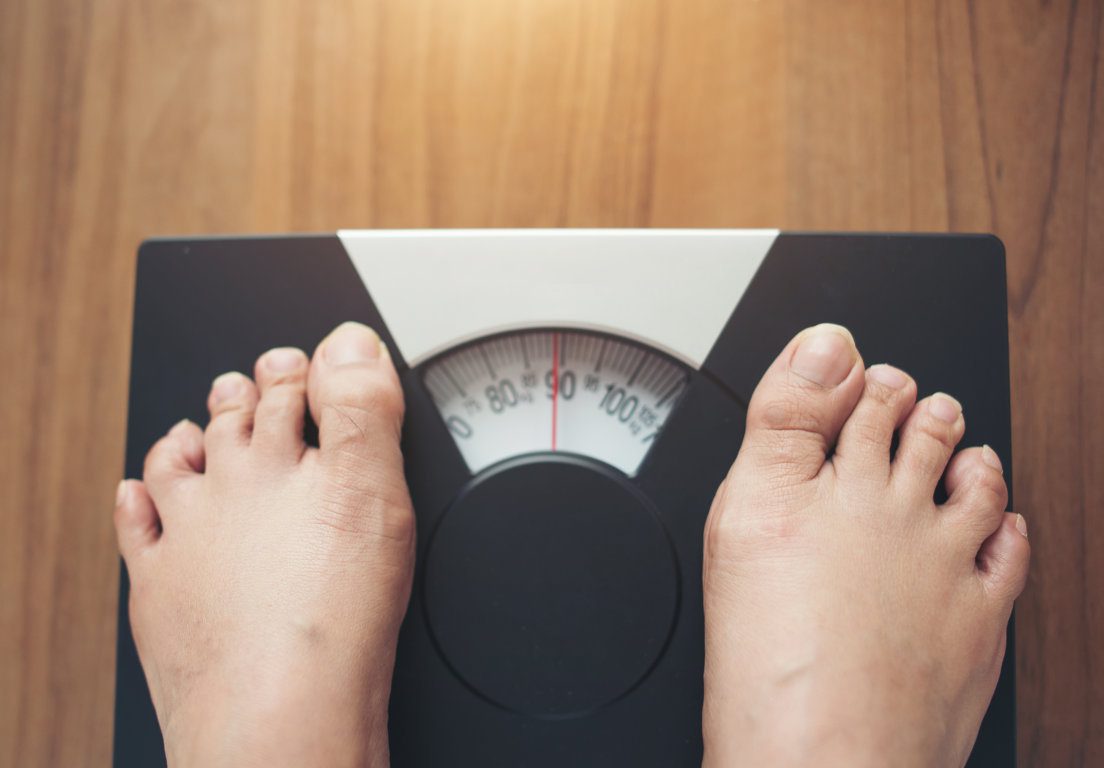One of the golden guidelines for maintaining a healthy body is to keep your weight in balance with your height, gender, and age group. It’s generally simple to lose or gain weight, but it’s far more difficult to keep it off, and here is where the game changes. While the desire to gain or lose weight is understandable, staying within the range of your target weight is essential. Homeopathy treatment is a priority for most individuals as it is safe and prepared from natural substances even for weight loss treatment.
First, determine and examine the fundamental cause of your weight gain:
- Whether due to an underlying medical condition
- A lack of physical activity
- Irregular food patterns
- Heredity
While not everything on the internet is incorrect, most trends and popular ideas frequently lack scientific support. This will help us develop the most accurate personalized diet plan for your desired weight.
After some investigation, we have compiled a list of seven health facts that you may be confused about. These statements cover a broad range of topics, from sugar to mealtime. Take a look at these things that you should be aware of.


1. Skipping breakfast is not an option
Breakfast is the essential meal of the day, and while many people believe that eating breakfast may make you lose weight and increase your metabolism, skipping breakfast will do more harm than good
2. Sugar is as bad as smoking
Sugar is distracting, yet it provides only empty calories. Sugar, particularly white sugar, is harmful to the body in the same way that cigarettes are. Reduce your daily sugar intake and replace it with fiber-rich vegetables and fruits
3. Keep food in glass containers rather than plastic containers
Glass containers are delicate and readily breakable. However, it is always preferable to keep food items in glass containers rather than plastic containers from a food safety standpoint, as leakage and processes occur through plastic containers.
4. Coffee can help you feel better
Excessive coffee use is harmful, yet a small amount of coffee consumed daily has been shown in studies to reduce depression by 20%. Caffeine in coffee has boosted people’s mental wellness and mental focus.
5. Meal timing is just as crucial as meal preparation
It is just as vital to focus on meal planning and preparation to consume meals on time and regularly. Mealtime imbalances can have a significant impact on health
6. Stretching before running may reduce tolerance
While trying to stretch and warm-up exercises are recommended before any physical activity, stretching before running may reduce and decrease stamina. Stretching before a run is not recommended since stretching relaxes the body and is usually reserved after completing an activity
7. It is healthy to consume raw pumpkin seeds
Pumpkin seeds have a large proportion of vitamins and minerals, including zinc and selenium. It is usually used in a variety of dishes or consumed roasted. It is recommended to consume pumpkin seeds uncooked in ways that generate the most benefits from them


A healthier lifestyle
Now it’s your turn. Before following any online trends or opinions, it is advised to check the facts from references and depend on evidence and reason. We hope this clarifies things for you and encourages you to take a step toward a healthier lifestyle.
Hundreds of fad diets, weight-reduction schemes, and unjustified fraudulent activities claim to offer rapid and effortless weight loss. A well-balanced, calorie-controlled diet combined with increased physical activity, on the other hand, remains the cornerstone of long-term weight loss treatment success. Permanent adjustments in your lifestyle and health habits are required for long-term weight reduction success.
How do you make long-term changes? Consider using these approaches for further details.
Losing weight is a difficult process, but gaining weight may be just as difficult. Many factors, such as a rapid metabolism, certain medications, stress, and health complications such as hyperthyroidism, coeliac disease, anemia, or type I diabetes, make it difficult to gain weight.
The most difficult aspect of gaining weight is that people tend to gain fat mass rather than lean muscle mass. It appears to be simple to consume junk and processed foods to bulk up on calories, but this is harmful in the long term.
Overview
Unexplained weight loss, or weight reduction without effort, might be a cause for worry. It may be a symptom of the underlying issue.
A decent rule of thumb is to consult your doctor if you’ve lost a considerable amount of weight—more than 5% of your body weight—in the last 6 to 12 months. In addition, make a list of any other symptoms you may have to discuss with your doctor.
Keep in mind that not every weight loss treatment is severe. It can occur as a result of a life-altering or stressful experience. On the other hand, unintentional weight loss might indicate one of several medical diseases.


1. Muscle loss
Muscle loss, also known as muscle wasting, can result in unexpected weight loss. Muscle weakness is the most common symptom. One of your limbs may appear to be shorter than the other.
Your body is composed of fat and fat-free mass, which includes muscle, bone, and water. You will lose weight if you lose muscle.
This might happen if you don’t use your muscles over a long period. It is especially prevalent in those who do not exercise, work at a desk or are bedridden. Exercise and an adequate diet, in general, will restore muscle loss.
Muscle loss can also be caused by the following factors:
- Broken bones, injuries
- Aging
- Burns
- Stroke
- Osteoarthritis
- Arthritis rheumatoid
- Osteoporosis
- MS (multiple sclerosis)
- Injury to the nerves
2. Hyperthyroidism
Hyperthyroidism, often known as an overactive thyroid, occurs when your thyroid gland produces an excessive amount of thyroid hormone. These hormones regulate various bodily systems, including metabolism.
Even if you have a good appetite, if your thyroid is hyperactive, you will burn calories rapidly. As a result, unexpected weight loss can happen.
Other signs and symptoms include:
- Rapid, irregular heart rate
- Anxiety
- Fatigue
- Intolerance of heat
- Sleep issues
- Tremors in the hands
- Women’s light periods
Several causes can contribute to hyperthyroidism, including:
- Graves’ syndrome
- Thyroiditis
- Consuming an excessive amount of iodine
- Using an excessive amount of thyroid medicine
Treatment for hyperthyroidism is determined by your age and the severity of your condition. Common treatments include anti-thyroid medicines, radioactive iodine, beta-blockers, or surgery.
3. Rheumatoid arthritis
Rheumatoid arthritis (RA) is an autoimmune disease in which your immune system attacks the joint lining, causing inflammation. Chronic inflammation can boost the metabolism and help you lose weight.
The most common RA symptoms are joint swelling and discomfort. The same joints on both sides of your body are generally affected. If you have RA, you may have joint stiffness if you do not move for an hour or more.
RA’s actual origin is uncertain. It might be related to:
- Age
- Genes
- Hormonal shifts
- Smoking
- Secondhand tobacco use
- Obesity
Medication is usually the first step in the treatment of RA. Disease-modifying antirheumatic medicines, corticosteroids, biologics, and Janus-associated kinase inhibitors are examples of medications.
4. Diabetes
Type 1 diabetes is another reason for unwelcome weight loss. When you have type 1 diabetes, your immune system targets hypoglycemic agent-producing cells in your pancreas. Your body cannot utilize glucose for energy if the hypoglycemic agent is not present. Blood glucose levels rise as a result.
Your kidneys release unused glucose in the form of urine. Calories leave your body as sugar does.
Diabetes type 1 also causes:
- Urination occurs frequently
- Dehydration
- Fatigue
- Blurry vision
- Extreme thirst
- Excessive intake
Hypoglycemic agents, blood sugar monitoring, dietary changes, and exercise are all part of the treatment for type 1 diabetes.
5. Depressive disorder
Weight loss is a symptom of depression, defined as feeling miserable, lonely, or helpless for at least two weeks. These feelings interrupt regular tasks such as going to work or school.
Depression is controlled by the same portion of the brain that regulates hunger. This can result in a decrease in hunger and, subsequently, weight loss.
Certain people may experience an increase in hunger as a result of depression. Symptoms differ from individual to person. Other depressive symptoms include:
- Constant sorrow
- Lack of excitement for activities
- Low concentration due to limited energy
- Inadequate or excessive sleep, thoughts of death, or suicide irritate
- Behavioral treatment, psychotherapy, and medicines are used to treat depression.
6. IBD (Irritable Bowel Disease)
Unexpected weight loss may indicate inflammatory bowel disease (IBD). IBD refers to a group of chronic autoimmune disorders of the digestive system. Crohn’s disease and ulcerative colitis are the two most frequent kinds.
IBD’s inflammation puts your body in a catabolic state, which means it’s continually draining energy.
IBD also interferes with the hunger hormone ghrelin and the satiety hormone leptin. This results in a reduction in appetite and weight loss.
Other symptoms include:
- Diarrhea
- Stomach ache
- Bloating
- Stools that are bloody
- Fatigue
Certain meals can cause these symptoms. You may be afraid to eat if you have IBD. IBD is often treated with dietary assistance, medicine, and, in rare circumstances, surgery.
7. Chronic obstructive pulmonary disease (COPD)
Chronic obstructive pulmonary disease (COPD) is a lung condition that worsens with time. Emphysema and chronic bronchitis are two examples. Many COPD patients have both.
Emphysema gradually damages the air sacs in your lungs, making it difficult to breathe. Chronic bronchitis causes inflammation of the airways that transport oxygen and carbon dioxide to your lungs. This results in mucous, coughing, and breathing difficulties.
Early-stage COPD is mild. Some people may not exhibit any symptoms; however, those that do may include:
- Breathing difficulty
- Wheezing
- Tightness in the chest
- Coughing that is not too severe, with or without mucous
COPD can cause weight loss in its later stages. Breathing physically burns a lot of calories. According to studies, a person with COPD may require up to ten times the amount of calories that a person without COPD does to breathe.
8. Heart failure with congestive swelling
Weight loss is a side effect of congestive heart failure (CHF). CHF occurs when the heart cannot fill enough blood, pump blood with adequate force, or both. It has the potential to harm one or both sides of the heart.
When you have CHF, your digestive tract does not get enough blood. This can result in nausea and an early feeling of fullness. It may also be difficult to breathe when eating.
Swelling in damaged cardiac tissue increases metabolic activity, resulting in accidental weight loss.
- Shortness of breath is another sign of CHF
- Coughing that doesn’t stop
- Swelling
- Fatigue
- Rapid heart rate
Angiotensin-converting enzyme inhibitors, beta-blockers, and diuretics are among the medications used to treat CHF. Surgery may be required in some instances.


Males vs. Females
Men scored higher than women in the following categories:
- Endocarditis
- Pancreatic cancer
- Lung cancer
Women are more likely than males to get COPD. Women are two to ten times more likely than males to develop hyperthyroidism and two to three times more likely to develop RA.
Homeopathy treatment for Weight loss
Weight loss reasons are numerous and medicine in homeopathy is great for restoring a balanced number of hormones in the body and so regulating or keeping symptoms produced by weight loss under control. Individuals can be cured of symptoms such as acne, heart problems, diabetes, unwanted hair growth, and irregular menstrual cycles by using the constitutional treatment that we provide.
Our clinic’s experienced doctors treat weight loss using an approved and proven procedure. Before delivering treatment, the participant’s total body health state, past and present health history, and family health history are thoroughly investigated.
Our approach has no adverse effects and is completely risk-free. It seeks to restore the immune system’s power and former health so that the ovaries can function normally again.
Contact us right now for more information on the treatments and services provided by Dr. Positive Homeopathy.
Stay fit!!

